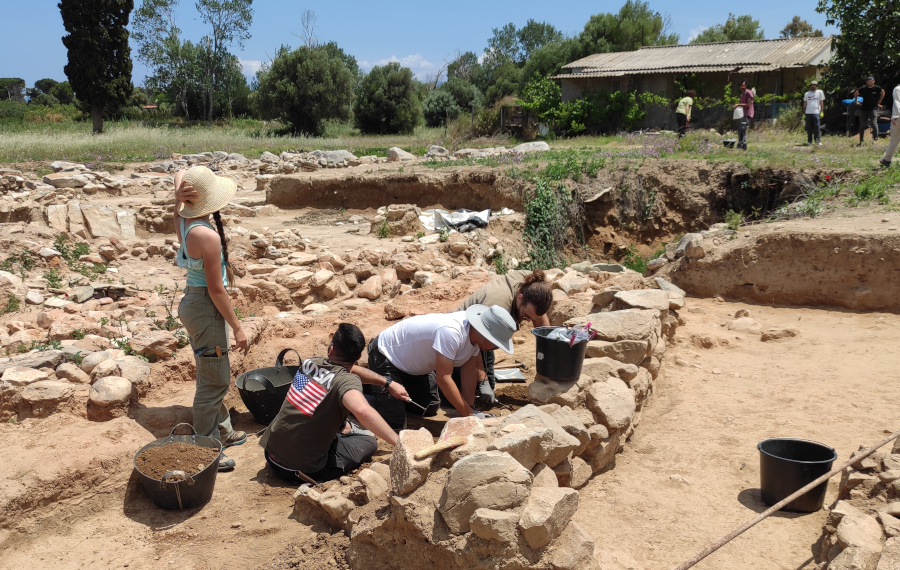Παρουσίαση/Προβολή

Archaeological excavation: theory and practice
(75606) - Yiannis Papadatos, Giorgos Vavouranakis, Michel Roggenbucke
Περιγραφή Μαθήματος
The course introduces the students to archaeological fieldwork and the basic principles of field conservation. The first part of the course comprises lectures in class on topics such as the archaeological record, the archaeological site, stratigraphy, excavation techniques, the field documentation with an emphasis on digital applications in archaeological fieldwork, the conservation of architectural features and artifacts during or immediately after the excavation. In second part of the course, the students participate in the excavation of Marathon. The site lies only 1 km from the Tumulus of the well-known battle of Marathon. The excavations have so far revealed an Early-Middle Bronze Age fortified settlement, an extensive Late Bronze Age cemetery, a Mycenaean settlement, a Protogeometric cemetery, a Geometreic-Archaic sanctuary, and a Classical and Hellenistic industrial quarter. Depending on the excavation program each year, students are actively engaged in the excavation of some or even all of the above types of contexts.
Ημερομηνία δημιουργίας
Σάββατο 24 Φεβρουαρίου 2024
-
Περίγραμμα
Course Syllabus
This course aims to provide
A) the basic information about excavation methods and techniques
b) a basic practical training in excavation
c) an outline of the main conservation techniques in the field
d) a basic practical training on conservation first aid in the field
e) a critical understanding of different field methods and techniques
f) academic and practical skills for working both alone and in groups in the field
Prerequisites/Prior Knowledge
There are no prerequisites. Prior knowledge of the basic principles of archaeology and of prehistoric and classical archaeology in Greece is helpful.
Instructional methods
Half of the course is mainly taught through lectures with Q and A at the end of each lecture. Half of the course is taught in the field, through participation in the excavation of the Department of History and Archaeology at Plasi, Marathon. The second half of the course is the most important. Students are trained in digging, documenting and conservation techniques.
Assessment Methods
The course is assessed via
- performance in the field and the lab (30%)
- a final written exam (COVID or other restrictions may oblige to have an oral or online exam instead) (70%)
- active class participation throughout the semester (bonus 10%)